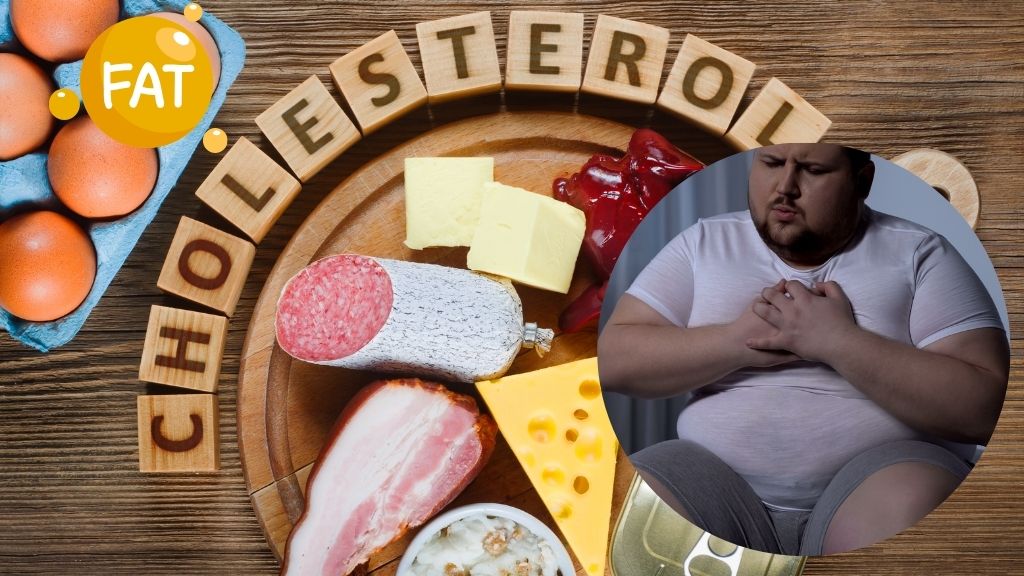Lower Cholesterol in 10 Days: Cholesterol is often misunderstood, but it’s essential for our survival. It plays a critical role in building cells and producing hormones. However, poorly managed cholesterol levels can lead to serious health issues, particularly heart disease. The good news? You don’t have to make drastic changes to your diet or eliminate fat entirely to improve your cholesterol levels. In fact, with the right approach, you can see significant improvements in as little as 10 days.
Not All Cholesterol Is Created Equal
Dr. Sarah Berry, a leading expert in nutrition and chief scientist at ZOE, emphasizes that not all cholesterol is bad. Cholesterol travels through the bloodstream in two main forms: low-density lipoprotein (LDL) and high-density lipoprotein (HDL). LDL, often referred to as “bad” cholesterol, can build up in the arteries, leading to plaque formation and increasing the risk of heart disease. HDL, on the other hand, is considered “good” cholesterol because it helps remove LDL from the bloodstream.
Dr. Berry explains that LDL cholesterol is packaged with a specific label called apolipoprotein B, which allows it to cross into the lining of blood vessels. Over time, this can lead to atherosclerosis, a condition where arteries narrow and harden, restricting blood flow. If a plaque bursts, it can cause a blockage, potentially triggering a heart attack.
The Myth of Cutting Out Fat
One of the most common misconceptions about managing cholesterol is that you need to eliminate all fat from your diet. Dr. Berry calls this idea “nonsense.” In fact, she argues that a healthy fat diet can improve cholesterol levels, while a high-carbohydrate diet can make them worse. The key is to focus on the right types of fats.
The Power of Polyunsaturated Fats
Polyunsaturated fats, found in foods like fish, nuts, and vegetable oils, are particularly effective at lowering LDL cholesterol. Dr. Berry highlights that increasing your intake of these fats can have a profound impact on your cardiovascular health. Research shows that people who follow a diet rich in polyunsaturated fats can reduce their risk of cardiovascular disease by 10 to 30 percent.
Instead of cutting out fat entirely, Dr. Berry recommends reducing your intake of saturated fats—found in foods like butter, red meat, and full-fat dairy—and replacing them with polyunsaturated and monounsaturated fats. Monounsaturated fats, found in olive oil, avocados, and certain nuts, also support heart health.
Also Read: 6 daily habits that can help you lose weight
The Role of Fiber and Whole Grains
In addition to healthy fats, increasing your fiber intake can help lower cholesterol. Whole grains, legumes, and vegetables are excellent sources of fiber, which binds to cholesterol in the digestive system and helps remove it from the body. Dr. Berry suggests incorporating more whole grains and legumes into your diet while reducing refined carbohydrates like white bread and sugary snacks.
A 10-Day Plan to Lower Cholesterol
If you’re looking to improve your cholesterol levels quickly, Dr. Berry recommends focusing on these four dietary changes:
- Increase Polyunsaturated Fat Intake: Add more fish, nuts, seeds, and vegetable oils to your meals.
- Boost Fiber Consumption: Opt for whole grains, legumes, and plenty of fruits and vegetables.
- Reduce Refined Carbohydrates: Cut back on white bread, pastries, and sugary foods.
- Incorporate More Legumes: Beans, lentils, and chickpeas are not only high in fiber but also provide plant-based protein.
Dr. Berry notes that dietary changes can impact cholesterol levels rapidly. “Diet changes cholesterol really quickly,” she says. By making these adjustments, you can start to see improvements in just a few weeks.
Final Thoughts
Managing cholesterol doesn’t have to mean giving up the foods you love or adopting an overly restrictive diet. By focusing on the right types of fats, increasing fiber, and making smarter carbohydrate choices, you can take control of your cholesterol levels and protect your heart health. Remember, small, consistent changes can lead to significant results—so why not start today? Your heart will thank you.
Also Read: Common Myths About Weight Loss Debunked
My Name is Sanjeev Vekariya, I cover News related to Entertainment, Health, Lifestyle and Food from India and Worldwide. I have more than 5 Years of Experience in Writing Trending News Article.










